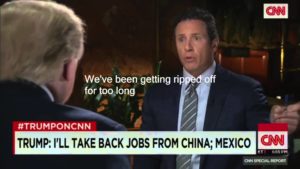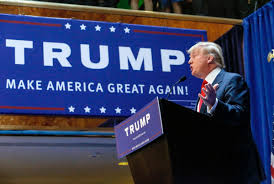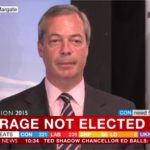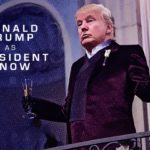Trump: Global Trade Disaster – Mr Terry
RHS’ resident economic expert, Mr Terry, offers a cheery appraisal of Donald Trump’s philosophy on trade to kick off 2017…
Donald Trump as President, Nigel Farage as the UK’s most influential politician – interesting to say the least! The modern press loves to be pessimistic, so as the nights draw in and the cold and wind batters RHS, let’s have a good dose of economic pessimism to cheer us all up.
“Trade pacts are no good for us and no good for our workers”
“Restrict free trade to keep jobs in US”
Donald Trump has been saying a lot about free trade during the US elections and the implications of the quotes above, if followed through could have devastating effects on the global economy.
Trump as President has the power to impose unilateral trade restrictions on foreign countries, at least in the short-term; this basically means that he can make foreign imports more expensive in the USA with the idea that people will then swap to buying domestic products rather than foreign products – simple! However, it is unlikely that the rest of the world would take this lying down and this would very likely result in retaliation from other countries leading them to impose restrictions of their own, which could lead to a ‘tit for tat’ trade war which could spread across the globe.
Trump’s stance on trade also means that trade deals currently on the negotiation table are less likely to be signed and current trade deals such as The North Atlantic Free Trade Agreement are now under threat. Trump could have a big negative impact on global trade.

Why does this matter? Well, because trade makes us better off, it allows us to sell our products abroad to generate revenue and allows us to buy the products that we want at cheaper prices, making our income go further and giving us greater economic welfare. The idea is that we make and sell what we are best at making and buy what we cannot make efficiently from abroad leading to greater global output, economic growth and everyone is in theory better off. We also get much greater choice and variety in what we can consume.
Pessimist economists estimate that the impact of Brexit on UK trade, i.e. eroding the argument above, may make the average UK household up to £1,700 per year worse off (Centre for Economic Performance/London School of Economics)!
Trade also leads to lower prices in an economy as firms are forced to become more competitive as they now need to compete internationally not just domestically. Competition also encourages firms to innovate and develop better products. Trade helps us get better goods at lower prices.
Trade restrictions also hit the poor much more than they hit the rich. If people have to pay more for the goods that they buy, this hits those on fixed or low incomes to a much greater extent than those on higher incomes. In economics, we say that trade restrictions are regressive, they can increase income and wealth inequality.
Therefore, if the world’s most powerful economy steps away from free trade it could have a massive impact on the rest of the world and us, not least because the US is a huge, lucrative market and if it becomes harder for us to sell in that market we are in trouble. This could hit other nations in the same way, reducing their revenue from exports and reducing the demand in turn for our products, leading in theory to a negative downwards spiral, lower growth and global zombie apocalypse.

So, is Trump right to do this? Trump feels it will strengthen and thus benefit US domestic industry leading to more jobs, more profit and greater economic welfare. This is despite the fact that the US Chamber of Commerce estimate that the USA’s trade deals increase the average US households purchasing power by about $10,000 per year.
Time will of course tell who is right and who is wrong but perhaps the recent economic history of Brazil suggests that caution should be observed. In Brazil President Rousseff took office with similar ideas to Trump and enforced restrictions on imports to boost domestic industry. In 2010 when she took office the Brazilian economy was growing at 7.5% per year. By 2015 this had fallen to negative growth of 3.8% In a nut shell, import revenue fell, due to other countries retaliating, which meant that the revenue from exports that was being used to fund economic expansion dried up and Brazil were forced to start borrowing to make up the deficit which meant that interest payments started taking up more and more of the government’s funds. All a bit disastrous and eventually Rousseff was ousted from power.
Economic theory is pretty clear on trade – Trade is good! The problem is that the benefits of global free trade necessitate governments putting their own short-run concerns and targets on the back burner for the long-run benefits that should in theory materialise over time. That is very difficult to do when you are reliant on the public’s votes to retain power. The public can be very short-termist. It is human nature to take more account of what is happing now rather than what may happen in the future. A populist leader such as Trump is unlikely to ignore short-term considerations even if it causes long term damage!
We are all doomed!















Post Comment
You must be logged in to post a comment.